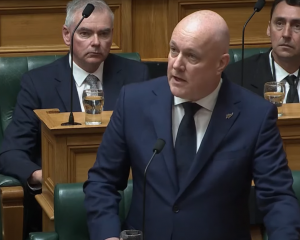
However, MetService will remain New Zealand's authorised meteorologist, responsible for providing warnings and advice on severe weather.
The decisions have been announced on an in-principle basis, with no firm date yet.
Presuming all goes smoothly, it will mark an end to the long-running feud between the two organisations.
The former Meterological Service was split in 1992, with MetService taking over day-to-day forecasting and Niwa - the National Institute of Water and Atmospheric Research - taking over climate research and longer-term forecasts.
The merger announced today was recommended in the Weather Forecasting System Review, which the government commissioned from the Sapere research group last year after the severe weather events.
Collins said more work was needed, but the new approach would improve safety and support a future-focused forecasting system.
"Having a strong weather forecasting system which combines weather forecasting science with land and hydrological system sciences through to daily public weather updates will help us meet the current and future demands of New Zealanders," she said.
"Bringing together the science around climate, weather forecasting, hydrology, and coastal hazards will improve our understanding and allow us to better prepare for, and respond to, severe weather events.
"Extreme weather events in 2023 resulted in a tragic loss of life. These events cost nearly $12 billion in economic terms and $5 billion in insured loss."
Treasury officials will work with the two forecasters and the Ministry of Business, Innovation and Employment













